THE WORLD OF WORDS – AN ESSAY ABOUT ONE ASPECT OF ZYGMUNT HAUPT’S WRITING | PAWEŁ PANAS, PhD
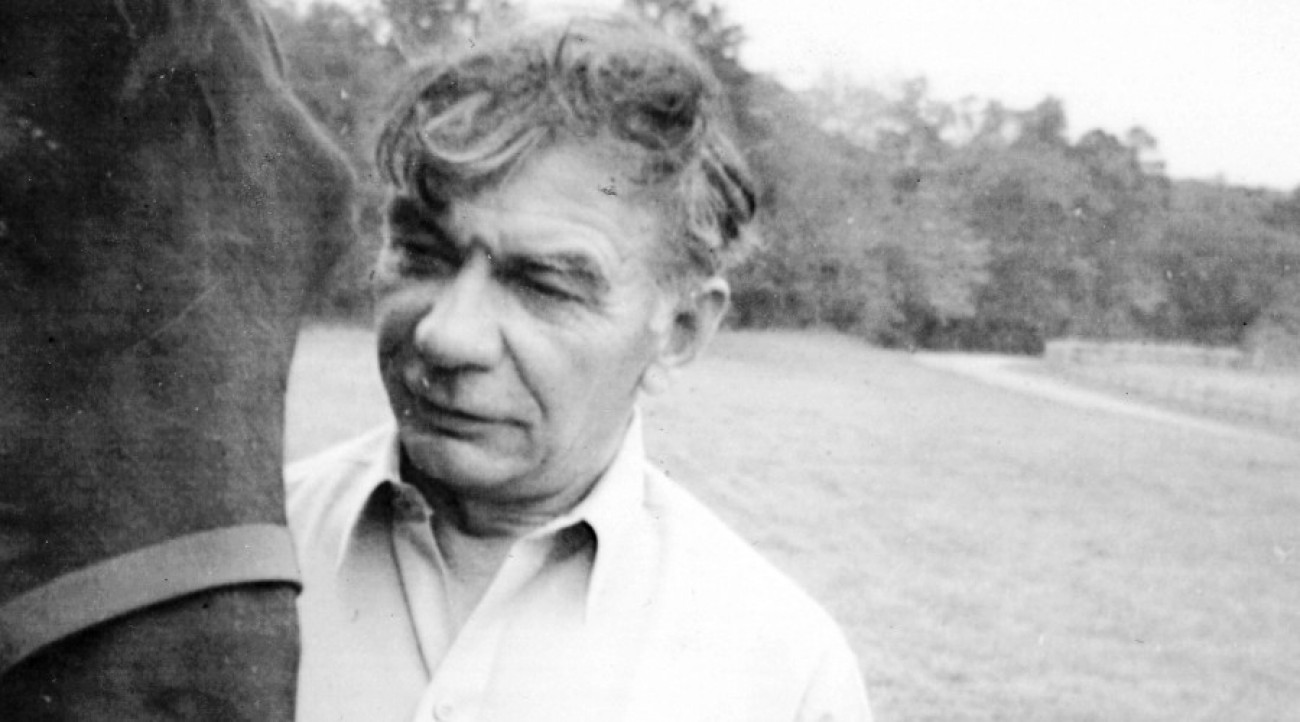
1.
Let us once again begin with the writer’s letters. In his letter from the 9th of January Zygmunt Haupt confides in Józef Wittlin:
I will soon be facing an unpleasant kind of situation. Namely, some New Orleans committee approached me on the account of helping them as a translator, regarding the reception of the first grand transports of Polish IDPs, which is to enter their harbour. Should it come to this, I will attempt to restrict my role to translator only, for my opinions on the new, longed-for life which they are to begin here, those opinions would be paradoxical and unenthusiastic.*
Some time later, in a letter from June 13th the author of “Pożegnanie z ojczyzną” adds:
I am continuously on duty as committee member welcoming the ships with Polish IDPs, and then I visit them all around Louisiana, at their new places, and compassionately I listen to their sorrows and worries, and disappointments. In return I get to listen to Polish from the Sanok, Konin, and Kamionka Strumiłowa regions. I ask them, what about coming back to Poland. “We’re not going to be, they say, ruled by no Moskal.” Of course they don’t trust me, an intellectual, they remember very well how the intelligentsia duped them. But sometimes they really loosen up their starch, up to the point where they tell me their dreams (“I’ve dreamt of the Virgin Mary and a lot of people – there will probably be a funeral…”).
The arrival of ships with Polish emigrants (internally displaced persons) provokes the writer to once again take on the difficult topic of life in exile, a topic close to Haupt on an existential level, and which corresponds with his intellectual and artistic points of interest. The obvious lack of enthusiasm (born, after all, straight from his own emigration experience) is accompanied by a realistic, clearly distanced attitude. The reluctance he shows does not, however, stem from egoism. On the contrary, it is motivated by compassion and – what is, perhaps, most important – the awareness of being part of common history, having a role in one play. The deeper the awareness, the more severe the pain. This pain was, without doubt, felt by the writer’s correspondent, it was also an inseparable element of Haupt’s self-awareness.
I would not, however, like to bring the cited fragment of correspondence down to the level of the anecdote it holds, which is, of course, a rather frequent temptation when analysing epistolography. For one can see something more in this small fragment, something equally thought-provoking and important. The quoted verses, when looked upon closely, reveal a palette of tones, out of which the tone of longing seems to be most important. On the surface it seems very obvious and, so to speak, typical. Here we have an exile who lives in a new world, far from what is familiar and close, longs for any element, even the smallest one, which could, even if for just a moment, bring back the lost heritage. It may be a coincidental or planned meeting with another Pole (every such event was very meticulously noted by Haupt in his letters). It may also be a book he read (the writer tried to actively keep abreast of the creative output from Poland). It may even be a word overheard somewhere. A special word, recognisable in the diversity of its variations (Polish from Sanok and Konin), inseparably connected with the specifics of familiar sounds the pleasantly tease the ear (Kamionka Strumiłowa).
Haupt writes about the importance of conversations and about the sounds that go with them in a letter to Wittlin from December 10th 1947:
It has been a few months now since we met in New York, and I value the memory of that meeting greatly. I found it very pleasant and home-like to wander around Manhattan with you, and when walking and talking about Polish matters one could forget that they are walking the 58th, when talking as if it was, for example, Chorążczyzny Street.
This choice is no coincidence. The emblematic words of the writer, in which he juxtaposes a huge western metropolis with his lost Lviv, do hide a particular metaphor for the fate of an exile. The impersonal new world is contrasted with the uniqueness of the homeland, the namelessness (symbolised by an abstract number) – with a name that is difficult to pronounce and impossible to forget. Chorążczyzny – a Proustian proper name. A birthmark. An open wound.
2.
The trauma of language accompanies the most intimate moments from Haupt’s emigratory life. It is clearly visible when the writer observes the progress his son makes in learning to speak Polish, which he mentions to Wittlin in his letter from March 6th 1948:
You are an old emigrant, but can you believe that, until recently, I had constantly been living on a Polish island, stuck in the Polish army in England, and all of a sudden I am on my own. Sir, I have a small son, he is two years and four months old now, and he is beginning to talk. And it looks like this: I count, I say “trzy,” “cztery,”** and my son repeats after me “tsy,” “stery,” we go to the zoo, I say “słoń,” he repeats “fłoń,” I show him a piggy bank “świnia,” he says “finia.” I am incredibly, unspeakably moved. But I am moved in a way that is abnormal, it is an untrue situation, an unbelievable situation. My unnecessary excitement does harm to me, and may do harm to my son. I am, naturally, overreacting, these days I am not the only one who is bound to be lonely and unhealthily moved.
This manner of writing can be found in other pieces, but what we are interested in is not limited to the level of existential experience. There is also the matter of creative work, although it is of course difficult to separate these two spheres.
Creative work in exile does (especially when it comes to the matter of language) of course imply objective, transcultural difficulties in communication, and immediately on two equally important grounds, as the issues of translation do, apart from their most practical aspect, have a deeper, meta-creative character – both have on numerous occasions been pointed out by the author of “Baskijski diabeł.” For Haupt, who was a maximalist, the fundamental part of a writer’s agenda was to aim at universalism, a goal not easily achieved when taking into consideration the character of his prose. All dissonance came from problems purely translatory, also thematic, but first and foremost from those of thought. Because Haupt thought and wrote in his native tongue. And even if it sounds banal, this triviality is overcome by the truth of the writer’s own difficult experience.
I have this incredible feeling as if I was a man from an anecdote, who leaves home one day to buy cigarettes in the corner shop and finds himself twenty years later across the world, living in prosperity and surprised by the world of circumstances. I left the country where everything was arranged into a very reliable pattern, everything converging just the way it should. One may live and not live this way, you dribble in a stream of emotion and impression through the automatism of small equalising differences that direct you into one groove or another, and life will flow and carry you through the forks and erosion of the pattern in the surface of the land wrinkled with concern. Whether I want it or not, I dribble into another pattern, but my sense of gravity has been shaped by the past.
– the writer noted in his draft “Zapiski autobiograficzne,” and it indeed is difficult to stay indifferent to these words. They echo in one’s head long after having been read, they echo with a familiar sound.
3.
So when I lay among the grass
and it matters not that the hemlocks, the thistles, that the silver wormwood, the buttercups like flames, the thymes, the bindweed
and the bindweed spins,
the wild oat is, like a vagabond, cheerful and blustering,
the wild poppy and sundew,
and by the water,
where the wet kingcups, remarkably yellow and fat kingcups
(please note that I am using this entire nomenclature, but so irresponsibly)
when I lay and listen to the roar of a bumblebee with a plush striped abdomen,
to the bee flying,
when I observe at the back side of a leaf
the aphids patiently sticking to their green,
I am as if in another country.
(Playing “green”)
Typical Haupt: Polish to the core, and at the same time universal in his own way. Entirely enrooted in the nature and culture of the motherland. You feel it straight away. For how do you explain to foreigners the nature of the hemlock. A regular botanic description does not suffice, here it is equally important to know the work of Sienkiewicz, or maybe even to read “The Street of Crocodiles.” What to do about the wormwood, the buttercups, the creeping bindweed, the bizarre sundew? How do you translate into another language the melody of words, the “sensuality of words.” I would like to draw your attention to the unintended alliteration.*** It is no coincidence, for Haupt’s subject absorbs the world with all his senses, also hearing. And then replays, or maybe recreates it, using the thaumaturgy of words.
The world can be listened to – this is an important and universal lesson that comes from the patient reading of the writer’s work (only such reading – leisurely – makes sense in this case). In this listening we become like children who discover the world around them anew. Haupt wrote about this in “Fragmenty,” which are filled with sounds and bindweeds:
I learn among this, whether I want to or not, I absorb all that is around me with every pore of my skin, just as you breathe with your skin, or as the tapeworm in the intestine absorbs with the entire surface of its body, its wormy body. This comes to me and it transforms within me, and here is where the processing of the world into my own world begins.
And further:
And then, all around, voices and voices and sayings, a garden of words, little paths cut out in this garden, you take a branch with words like that and pull it, like a jasmine branch, and you feel a shiver when it releases a shower of dewdrops. “That garden” was the second garden next to Szor’s storehouse with planks, the storehouse smelled like sawdust and Jewish rubbish. “It’s going smooth as silk”**** – mom would say, and I would wonder how can it be that something is going easily, smoothly as silk. “Tadeuszowa”***** – this word defined the whole world of the caretaker’s wife, her children, her husband, a drunk and, frankly, a thief, and the shabby apartment of poor people. “Roszlakowscy,” on the other hand, is a word encompassing the entire middle-class family, the entire middle-class community, the entire universe revolving around the same, prearranged middle-class affairs (…).
This is all very modernistic and simultaneously so very unlike anything we have known before. It seems to be the special power of the writer, who like none other had the ability to bring together all the contradictions in a way known only to himself, to fit them within one capacious and, at the same time, most coherent form. The craft he employed when using writing to utter (sic!) words can amaze. The more amazing is the power of evocation, which serves as a matrix to Haupt’s narratives. No longer the telling of a story (in the classic sense), but the recreating and creating seem to be the main goal of the writer’s efforts. What is important and should not be forgotten, and this applies equally to all layers of text, including that of its sound: just like you listen to the world, you listen to the writer’s story about the world.
4.
According to Haupt, a work of art is a microcosm of sorts, abundant and fragrant, perceivable with all the senses. He who listens will certainly hear. He who reads (best aloud) knows that I am right.
*The original correspondence between Haupt and Wittlin is held in the special collections of the Harvard College Library.
**Polish words: “three,” “four”, and then “elephant,” “pig,” which are imperfectly repeated by the child (translator’s note).
***The author refers to the phrase “zmysłowość słów” (“sensuality of words”), the alliteration is not present in the English translation of the phrase (translator’s note).
****The literal translation of this Polish idiom is “It’s going as if from a petal” (translator’s note).
*****The wife of Tadeusz (translator’s note).
 PAWEŁ PANAS, PhD | Assistant professor at the Catholic University of Lublin (KUL), member of the International Institute for Hermeneutics. Author of many treatises, has written for “Teksty Drugie,” “Europa Orientalis” and “Sing System Studies.” Author of the books: “Doświadczenia religijne w twórczości Gustawa Herlinga-Grudzińskiego” (Lublin 2012) and “Opisanie świata. Szkice o poezji Marcina Świetlickiego” (Cracow 2014). Editor of the joint publication “Horyzont religijny polskiej literatury emigracyjnej” (Lublin 2013). He has written several research papers on Zygmunt Haupt’s literary work, including “’Jeździec bez głowy’ Zygmunta Haupta. Fragmenty dyskursu symbolicznego” (in: “Symbol – znak – rytuał. Od narodzin do śmierci,” ed. J. Marecki, L. Rotter, Cracow 2014); “’… gdzieś poza krzywizną ziemi’. Dyskurs wygnańczy w korespondencji Zygmunta Haupta – rekonesans” (in: “Roczniki Humanistyczne” 2014, vol. 1); “Tożsamość wygnańca. Uwagi o zapiskach autobiograficznych Zygmunta Haupta” (in: “Osoba czy tekst?”, ed. A. Bielak, Lublin 2015). Originator and director of an all-Polish academic project dealing with the semiotic analysis of literary transfigurations of the experience of exile. The scope of the material included literary works by the author of “Baskijski diabeł.”
PAWEŁ PANAS, PhD | Assistant professor at the Catholic University of Lublin (KUL), member of the International Institute for Hermeneutics. Author of many treatises, has written for “Teksty Drugie,” “Europa Orientalis” and “Sing System Studies.” Author of the books: “Doświadczenia religijne w twórczości Gustawa Herlinga-Grudzińskiego” (Lublin 2012) and “Opisanie świata. Szkice o poezji Marcina Świetlickiego” (Cracow 2014). Editor of the joint publication “Horyzont religijny polskiej literatury emigracyjnej” (Lublin 2013). He has written several research papers on Zygmunt Haupt’s literary work, including “’Jeździec bez głowy’ Zygmunta Haupta. Fragmenty dyskursu symbolicznego” (in: “Symbol – znak – rytuał. Od narodzin do śmierci,” ed. J. Marecki, L. Rotter, Cracow 2014); “’… gdzieś poza krzywizną ziemi’. Dyskurs wygnańczy w korespondencji Zygmunta Haupta – rekonesans” (in: “Roczniki Humanistyczne” 2014, vol. 1); “Tożsamość wygnańca. Uwagi o zapiskach autobiograficznych Zygmunta Haupta” (in: “Osoba czy tekst?”, ed. A. Bielak, Lublin 2015). Originator and director of an all-Polish academic project dealing with the semiotic analysis of literary transfigurations of the experience of exile. The scope of the material included literary works by the author of “Baskijski diabeł.”




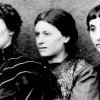

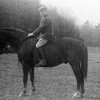
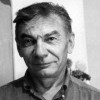
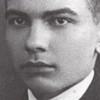
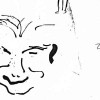
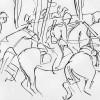
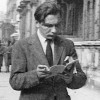
FIND US